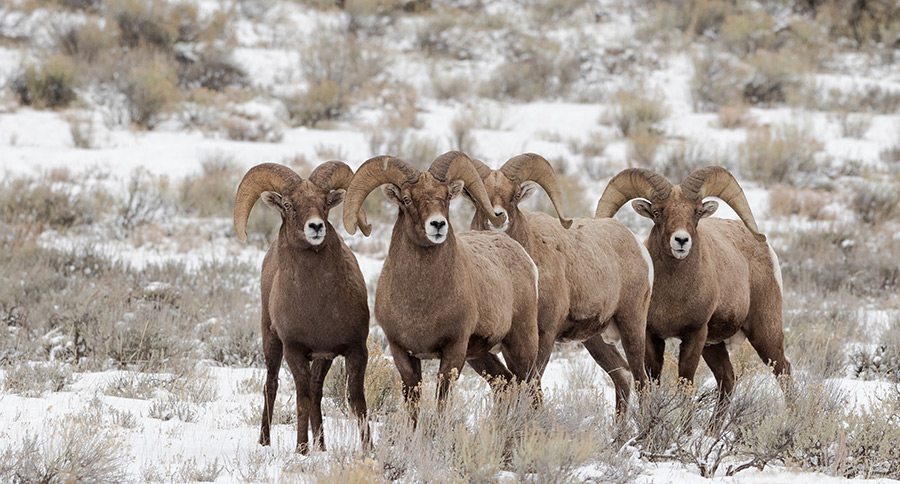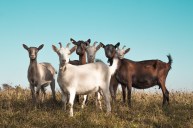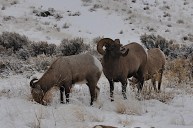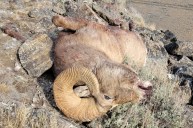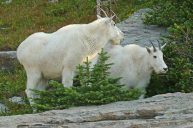Environmental groups have filed a lawsuit against the U.S. Forest Service to protect bighorn sheep from grazing domestic sheep.
The Western Watershed Project and WildEarth Guardians joined together to file an 18-page lawsuit contending that the U.S. Forest Service illegally jeopardized eastern Idaho bighorn sheep by allowing domestic sheep to graze in the same area.
The groups maintain that the domestic sheep may transmit diseases to the wild bighorns, and that the Forest Service allowed the grazing permits without a proper environmental analysis.
The domestic sheep are owned by the University of Idaho and have been authorized to graze in the Caribou-Targhee National Forest through permits issued to the U.S. Department of Agriculture's Sheep Experiment Station.
The environmental groups say that the area is home to a small herd of around 36 South Beaverhead Rocky Mountain bighorn sheep. They are asking the court to halt domestic sheep grazing until an environmental analysis can be completed. If the court does not comply with the lawsuit, domestic sheep can begin grazing on November 6.
Scott Lake, Idaho Director for Western Watersheds Project, said: "It's unjustifiable for the U.S. Department of Agriculture and the University of Idaho to expose wild bighorn to deadly pathogens for the sake of a few months of free forage on the national forest. The value of native wildlife far exceeds whatever the state and federal government will get out of taking this chance."
Sarah McMillan, Conservation Director of WildEarth Guardians was even more pointed in her criticism of the Forest Service: "The only way to prevent disease transmission is to keep the domestic sheep and bighorn sheep physically separated. The agencies know this. Nevertheless, the Forest Service is planning to keep domestic sheep within the range of the South Beaverhead population for months, even though this bighorn herd is already at risk. It's one of the smallest populations in Idaho, and this is an unconscionable choice."
On the other hand, domestic sheep have been allowed to graze the area for many years. Environmental groups have filed similar previous lawsuits in the region.
But in 2008, in a U.S. Forest Service review study authored by Timothy J. Schommer and Melanie M. Woolever cites U.S. Magistrate Judge Donald C. Ashmanskas, who said, "Scientific research supports a finding that when bighorn sheep intermingle with domestic sheep, large numbers of bighorn sheep die. While the exact reason for this result may be in question, it is clear that the die-offs occur. An incompatibility exists between the two species, and there is no way to avoid the incompatibility other than to keep the domestics and the bighorns separate."
Like what you see here? You can read more great articles by David Smith at his facebook page, Stumpjack Outdoors.
NEXT: Feds Deny Mining Lease Request in Minnesota's Boundary Waters Wilderness
https://rumble.com/embed/u7gve.v3v4j9/
